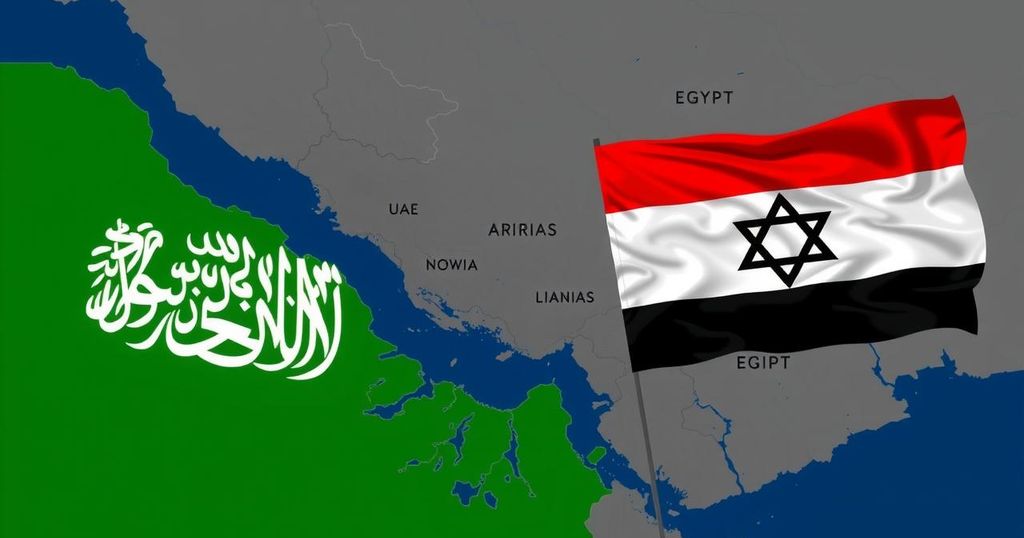Saudi Arabia, the UAE, and Egypt have displayed a subtle shift in their diplomatic stances towards Israel following Israeli military strikes against Iran. Rather than outright condemnation, these nations used measured language to highlight the importance of regional stability and security, suggesting a potential realignment and acknowledgment of Israel as a partner in countering Iranian influence.
In recent developments concerning Israeli military engagements in the region, Saudi Arabia, the United Arab Emirates (UAE), and Egypt have demonstrated a notable shift in their diplomatic language regarding Israel’s actions towards Iran. Rather than issuing typical declarations of condemnation, these nations have opted for measured and neutral statements that suggest a subtle, perhaps strategic, alignment with Israel against a common adversary: Iran. The UAE’s response exemplifies this new approach, as it condemned the military action without specifically targeting Israel. The statement emphasized the necessity for dialogue and adherence to international law, indicating a preference for diplomatic solutions over confrontational rhetoric. This reflects the broader diplomatic strategy of the UAE, which has pursued closer economic and security ties with Israel under the Abraham Accords. Saudi Arabia has similarly adopted a softened tone in its public statements. While articulating a violation of sovereignty, Riyadh has underscored the importance of regional security and stability. This shift illustrates a departure from the harsher rhetoric of the past, suggesting a more nuanced understanding of Israel’s security measures as a necessary component for countering Iranian influence. Egypt has taken an even more inclusive diplomatic stance, warning of broader confrontations that could destabilize regional and international security and calling for a ceasefire. This framing diverts attention from Israel’s specific actions to the overarching need for stability in the region, signaling Egypt’s role as a mediator focused on maintaining calm in turbulent areas along its borders. Overall, the responses from these three nations indicate a strategic realignment characterized by an implicit acknowledgment of Israel’s role in balancing Iranian power. This trend suggests a gradual shift in perceptions where Israel may increasingly be viewed as an ally in regional security, rather than simply as a historical adversary. Such a transformation could reshape alliances and cooperation throughout the Middle East, fostering a collective response to shared threats posed by geopolitical adversaries.
The complex nature of Middle Eastern geopolitics necessitates a careful examination of the evolving relationships among regional powers. Traditional alliances are often challenged by changing dynamics, particularly in the context of Iranian influence over the region. Israel’s military actions against Iran have historically elicited strong condemnations from Arab nations, but recent diplomatic communications from Saudi Arabia, the UAE, and Egypt hint at a significant recalibration of those relationships. This analysis examines how these countries are responding to Israeli military strikes in a manner that suggests a tacit acceptance of Israel’s role in countering mutual threats, showcasing a potential shift in alliance paradigms within the Middle East.
The nuanced responses from Saudi Arabia, the UAE, and Egypt demonstrate a significant shift in regional dynamics concerning Israel’s military engagements with Iran. By avoiding direct condemnation and emphasizing a focus on broader stability and security, these nations are signaling a potential reconfiguration of alliances that accommodates a shared interest in countering Iranian influence. This evolving relationship implies a future where Arab nations might view Israel not merely as a rival but as a strategic partner in ensuring regional stability, indicating a profound transformation in Middle Eastern diplomacy.
Original Source: www.jpost.com






